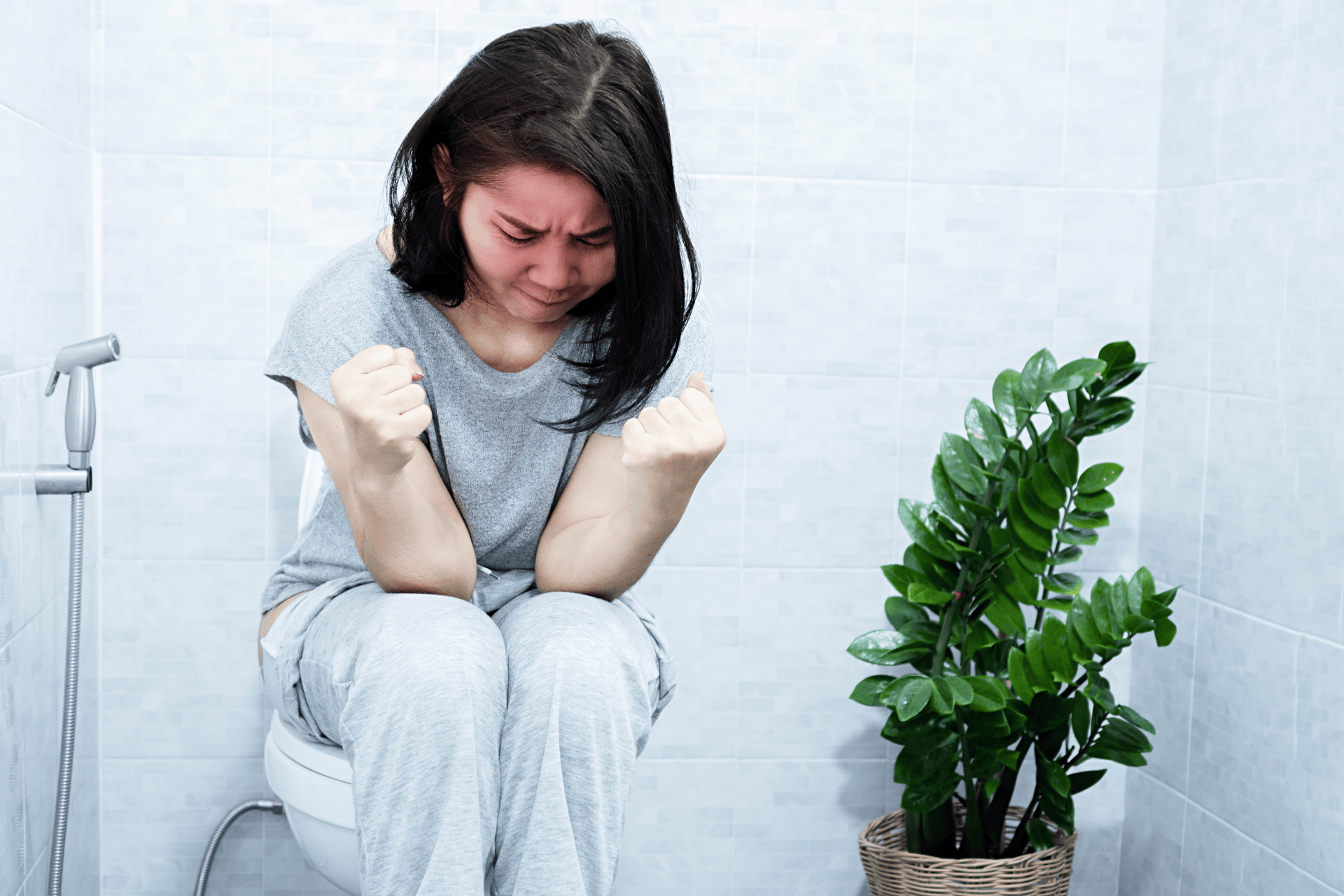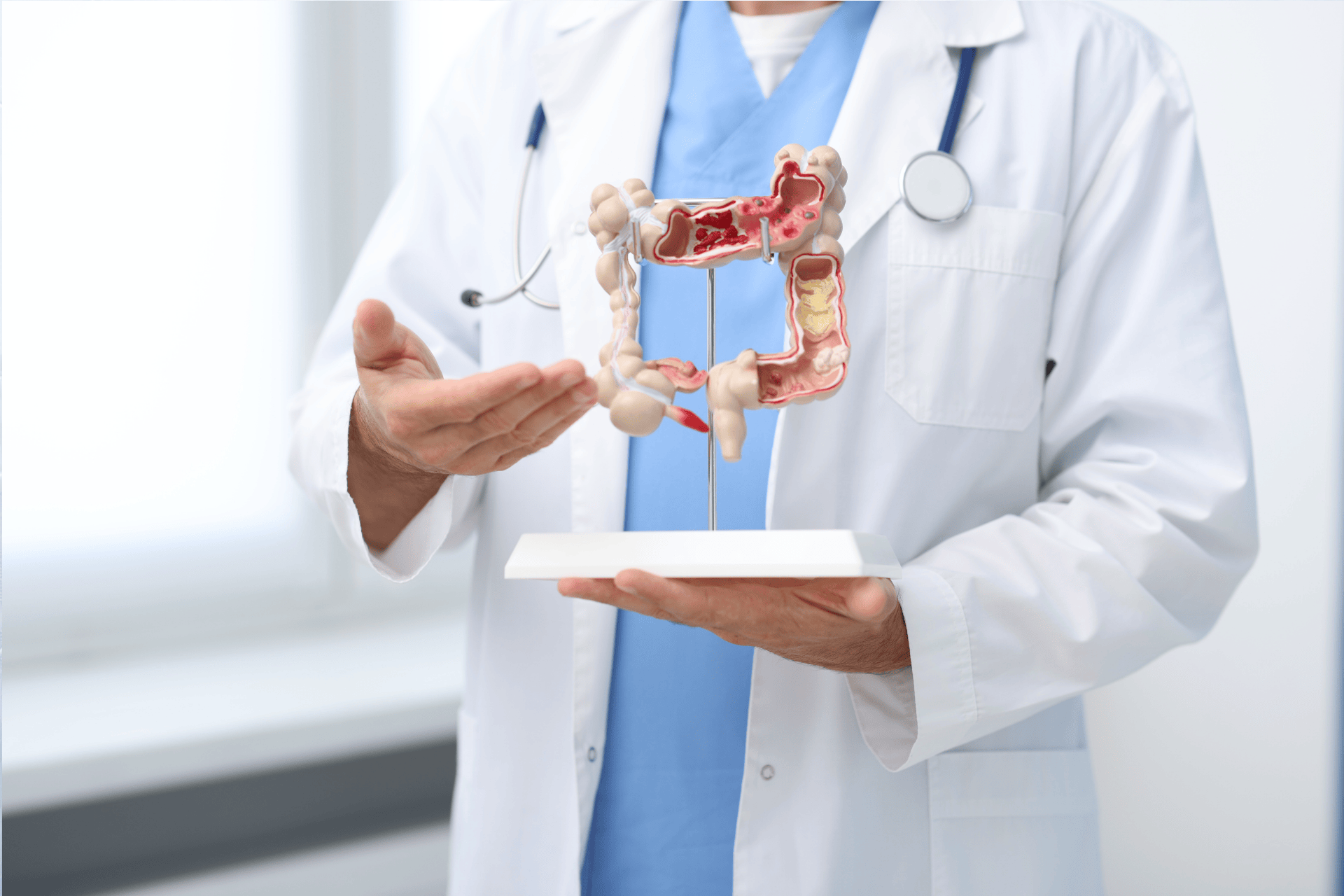GLP1 and Constipation - What Helps
Understanding GLP-1 Medications and Their EffectsGlucagon-like peptide-1 receptor agonists, commonly known as GLP-1 medications, have become a popular treatment option for [...]
Read More
Medically reviewed by Alan Lucks | MD, Alan Lucks MDPC Private Practice - New York on October 25th, 2025.
GLP-1 medications like semaglutide and liraglutide slow gastric emptying by 20-30% and reduce intestinal contractions, causing stool to move more slowly through the colon and become harder.
Constipation affects 11-24% of patients taking these medications, typically developing within the first 4-8 weeks of treatment as the digestive system adjusts to slower motility.
Increasing water intake to at least 64 ounces daily and adding 25-35 grams of soluble fiber (oats, beans, apples) helps soften stool consistency more effectively than insoluble fiber alone.
Over-the-counter docusate sodium (Colace) at 100mg twice daily or polyethylene glycol (MiraLAX) can provide relief within 12-72 hours for medication-induced constipation.
Walking for just 10-15 minutes after meals stimulates the gastrocolic reflex and can help counteract the reduced bowel motility caused by GLP-1 receptor activation.
Glucagon-like peptide-1 receptor agonists, commonly known as GLP-1 medications, have become a popular treatment option for type 2 diabetes and obesity. These drugs help regulate blood sugar levels and promote weight loss by mimicking the action of the natural hormone GLP-1, which stimulates insulin secretion and slows gastric emptying. While highly effective, one of the common side effects reported by patients using GLP-1 medications is constipation.
Constipation linked to GLP-1 drugs can be uncomfortable and may impact a person's quality of life. Understanding why this happens and what can be done to relieve symptoms is essential for anyone on these medications or considering them. This article explores the connection between GLP-1 therapies and constipation, practical tips to manage this side effect, and when to seek medical advice.
The mechanism behind GLP-1 medications involves their interaction with the gastrointestinal tract, where they can alter motility and affect how quickly food moves through the digestive system. This slowing down can lead to increased absorption of nutrients, which is beneficial for blood sugar control, but may also result in the unwanted side effect of constipation. Additionally, some patients may experience changes in their dietary habits when starting these medications, such as reduced appetite or altered food choices, which can further contribute to digestive issues.
To alleviate constipation, healthcare providers often recommend lifestyle modifications, including increasing dietary fiber intake, staying well-hydrated, and engaging in regular physical activity. Incorporating foods rich in fiber, such as fruits, vegetables, whole grains, and legumes, can promote healthy bowel movements. In some cases, over-the-counter laxatives may be suggested for short-term relief, but it is crucial for patients to discuss these options with their healthcare team to ensure they are safe and appropriate for their specific situation. Understanding the importance of maintaining digestive health while on GLP-1 medications can empower patients to take proactive steps in managing their overall well-being.
 Why Does GLP-1 Cause Constipation?
Why Does GLP-1 Cause Constipation?GLP-1 medications slow down the movement of food through the digestive tract, which helps control blood sugar spikes after meals. However, this delayed gastric emptying can also reduce bowel motility, leading to constipation. The slower transit time means stool remains in the colon longer, causing it to become harder and more difficult to pass.
Additionally, GLP-1 drugs may influence fluid absorption in the intestines, further contributing to drier stools. This side effect is often dose-dependent and may be more pronounced when starting treatment or increasing the dosage. Patients should be aware that while constipation is a common side effect, it is usually manageable with lifestyle adjustments and medical guidance.
Moreover, the impact of GLP-1 medications on gut hormones and the microbiome can also play a role in bowel health. These medications can alter the balance of gut bacteria, which may affect digestion and stool consistency. A healthier gut microbiome is often associated with regular bowel movements, so any disruption could lead to complications like constipation. Therefore, maintaining a balanced diet rich in fiber and probiotics can be beneficial for patients on GLP-1 therapy, helping to mitigate some of the gastrointestinal side effects.
It's also important to consider the psychological aspect of managing chronic conditions like diabetes. The stress of dealing with side effects, including constipation, can lead to anxiety and further exacerbate digestive issues. Patients are encouraged to communicate openly with their healthcare providers about any discomfort they experience. This dialogue can lead to tailored strategies, such as dietary modifications, hydration, and possibly the use of over-the-counter remedies, to alleviate symptoms and improve overall quality of life while on GLP-1 medications.
One of the simplest yet most effective ways to combat constipation is to increase water intake. Staying well-hydrated helps soften stools and promotes regular bowel movements. Aim for at least eight glasses of water a day, and consider drinking warm fluids like herbal teas in the morning to stimulate digestion.
Eating a fiber-rich diet can significantly improve bowel regularity. Include plenty of fruits, vegetables, whole grains, and legumes in your meals. Fiber adds bulk to stool and encourages movement through the intestines. However, it is important to increase fiber intake gradually to avoid bloating or gas.
Probiotics found in yogurt, kefir, and fermented foods may also support gut health by balancing intestinal bacteria. This can enhance digestion and reduce constipation symptoms.
Exercise stimulates intestinal contractions, helping to move stool through the colon more efficiently. Even moderate activities like walking, swimming, or yoga can make a difference. Incorporating physical activity into your daily routine is a natural way to support digestive health while managing GLP-1 side effects.
If lifestyle changes are not enough, over-the-counter laxatives or stool softeners may provide relief. However, these should be used sparingly and under medical supervision to avoid dependency or worsening symptoms.
Persistent or severe constipation should never be ignored, especially when taking medications like GLP-1 agonists. If symptoms last more than a week and are accompanied by abdominal pain, bloating, or blood in the stool, it is important to seek medical advice promptly.
Telehealth services offer a convenient way to discuss these concerns with a qualified healthcare provider from the comfort of home. Doctronic.ai provides affordable and accessible telehealth visits 24/7 across all 50 states. Their AI-powered platform offers fast, personalized medical advice and can help determine the best course of action for managing GLP-1 side effects.
Doctronic.ai stands out as a leader in modern telehealth by combining cutting-edge AI technology with expert medical knowledge. Patients using GLP-1 medications can benefit from Doctronic’s free AI doctor visits, which provide immediate answers to health questions based on the latest peer-reviewed research. This allows users to understand and manage side effects like constipation effectively.
Moreover, Doctronic offers affordable video visits with licensed doctors for personalized treatment and follow-up care. With over 10 million users and growing rapidly, Doctronic is revolutionizing direct-to-patient care by delivering smarter, faster, and more personal medical support. Visit Doctronic.ai today to explore how AI-powered healthcare can help you manage GLP-1 therapy side effects and improve your overall health.
Beyond immediate relief, maintaining long-term digestive wellness is crucial for anyone on GLP-1 medications. Regular monitoring of symptoms and open communication with healthcare providers ensure timely adjustments to treatment plans.
Incorporating mindfulness and stress reduction techniques can also positively impact gut function. Stress often exacerbates digestive issues, so practices such as meditation, deep breathing, or gentle exercise can be beneficial.
 Empowering Patients Through Knowledge and Technology
Empowering Patients Through Knowledge and TechnologyManaging medication side effects like constipation requires a proactive approach. With advances in telehealth and AI, patients now have unprecedented access to reliable medical information and personalized care. Doctronic.ai empowers individuals to take control of their health with confidence, ensuring that treatments like GLP-1 receptor agonists deliver maximum benefits with minimal discomfort.
By combining lifestyle strategies, timely medical support, and innovative technology, living well with GLP-1 therapy is achievable. If you or a loved one is experiencing constipation or other side effects, consider leveraging telehealth resources to get expert guidance quickly and conveniently.
If you're managing GLP-1 therapy side effects like constipation, Doctronic is here to provide immediate, personalized medical assistance. Our AI-powered platform offers free AI doctor visits, giving you quality care in seconds based on the most up-to-date, peer-reviewed medical research. For a more personal touch, our telehealth video visits connect you with our doctors 24/7, in all 50 states, for less than $40. Join over 10 million satisfied users and experience the most modern, personal primary care available. Skip the line. Talk to an AI Doctor Now, for free.
This common side effect occurs in roughly 1 in 5 patients but usually improves within the first month with proper hydration, fiber intake, and light physical activity. Most cases resolve with simple lifestyle modifications, though persistent symptoms lasting over a week warrant medical evaluation. If you're experiencing uncomfortable digestive changes on GLP-1 therapy, Doctronic can help you determine the best management approach.
Understanding GLP-1 Medications and Their EffectsGlucagon-like peptide-1 receptor agonists, commonly known as GLP-1 medications, have become a popular treatment option for [...]
Read More